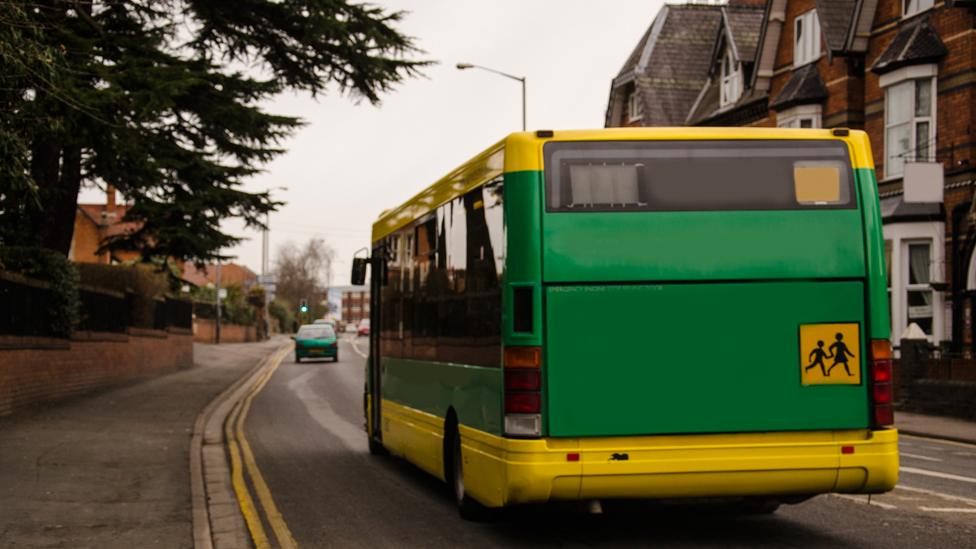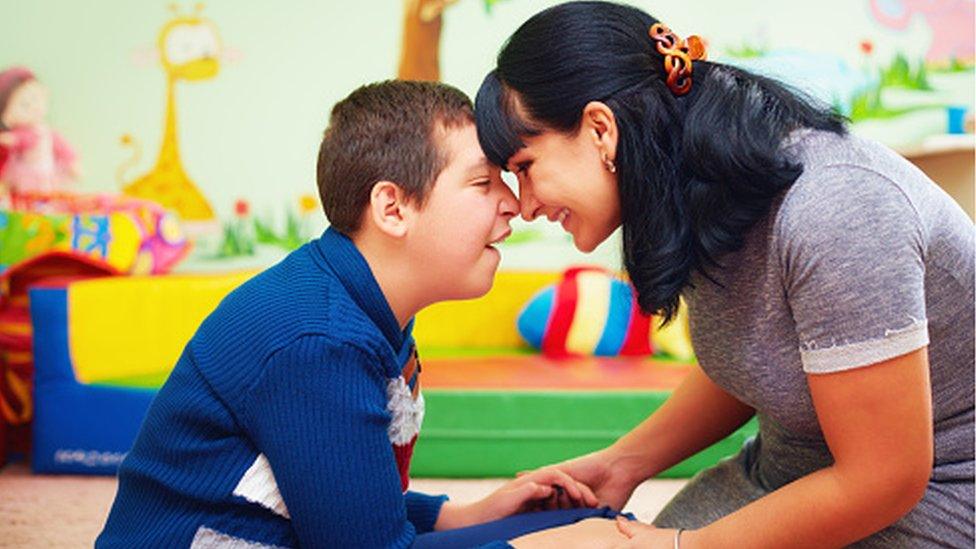School transport 'not good enough' for additional needs pupils
- Published

A lack of safe school transport means some pupils with additional learning needs are not being educated, the children's commissioner for Wales says.
Prof Sally Holland said they were particularly at risk of being let down when there were changes to their travel arrangements.
One parent of a teenager with ADHD and autism said he became depressed after his transport was changed by a council.
Ministers say they are committed to getting all children to school safely.
Prof Holland urged the Welsh Government to review its 11-year-old learner travel measure, adding that the current situation was "not good enough".
She said she had come across several cases in recent years illustrating the "profound effect" of insufficient transport for children.
The commissioner said as well as changes in routine leading to stress, the children often ended up with transport that didn't meet their needs.

Jesse refused to go to school when his transport arrangements changed
Jane Owen's son Jesse, 13, has attention deficit hyperactivity disorder (ADHD), autism and oppositional defiance disorder. She said his needs were not considered when the local council changed school transport arrangements.
"He became depressed and refused to go to school," she said.
"It impacted negatively on his behaviour, which after many months of hard work, had stabilised and improved. He became socially withdrawn and there were times when he wouldn't sleep at all...which resulted in his missing school.
"It was extremely frustrating and stressful."
Ms Owen said communication was a huge issue and changes in routine could affect behaviour.
"Letters advising parents of their child's transport provider are sent out a few days before the start of term which gives no time to prepare a child for change," she added.
Prof Holland addressed the transport issue in her annual report.
Her 145-page review of the last year, also calls for:
A "stronger approach" to bullying, which is a key priority for children themselves. Recording incidents is currently entirely optional for schools but the Welsh Government should ensure this is statutory
New funding for mental health residential care for the small number of young people with the most complex needs is provided. It is "very concerning" that Wales' two in-patient units are unable to accommodate children whose behaviour is deemed too "high risk", she said
A delivery plan to set out in detail the practical steps each Welsh Government department will take to tackle the impact of child poverty - otherwise reducing it will remain "challenging".
By 2021, individual learning plans for children and young people up to 25 with additional learning needs, like autism, Asperger's syndrome and ADHD are set to be introduced.
Prof Holland said the new law in theory should provide additional learning opportunities but young people needed to be able to travel to access them.
The annual report however does praise milestone achievements, including the first youth parliament at the Senedd and the abolition of the defence of reasonable punishment, or "smacking ban".
The Welsh Government said it was committed to ensuring learners could travel to education providers safely and that it recognised there were additional challenges in the transport of some pupils with additional learning needs.
"This includes travelling further, travelling on an individual basis or in small groups, or requiring companions to assist them in their journey," said a spokesman.
"The learner travel measure sets out the duties to provide safe transport provision for learners, and the Additional Learning Needs Act and the Social Services and Wellbeing Act provide the legislative background to improve outcomes for people with additional learning needs."
- Published21 September 2019

- Published4 December 2018

- Published17 September 2019
